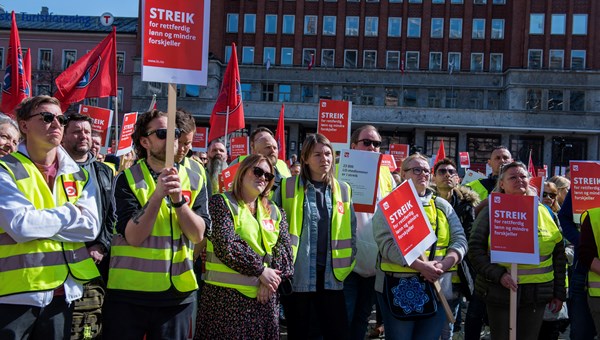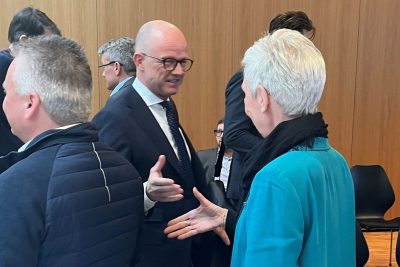Norway’s largest trade union federations are already planning to expand the major strikes that began all over the country on Monday. Another 15,000 workers at a wide range of businesses will be pulled off their jobs on Friday, while many companies are already shutting down and temporarily laying off employees not yet on strike.

Among the companies paring back operations because of the strike are delivery firm PostNord, Orkla Foods, construction firm Veidekke and some plants within industrial conglomerate Norsk Hydro, which sent out a force majeure notice to shareholders about the “extraordinary situation” at some of their plants. Newspaper Dagens Næringsliv (DN) reported that Hydro plants at Karmøy and Årdal, which deliver aluminum for car parts, felt forced to cut back production, also because of strikes in the transport sector.
National employers’ organization NHO told DN that the strike will collectively cost its affected member companies at least NOK 120 million a day when a total of around 40,000 workers are due to be on strike from this weekend. More can follow in a third expansion next week. NHO leader Ole Erik Almlid wants to meet the leader of Norway’s biggest national trade union confederation LO, Peggy Hessen Følsvik, back at the bargaining table as soon as possible.
“I think there’s always time to talk in a conflict like this,” he told DN. “We see the effects for many now. Millions of kroner are being lost every single day and it will get worse with each passing day.”
The first few days of the strike this week have been characterized by accusations of lying, leaks and legal infractions on both sides. As of Wednesday afternoon, there hadn’t been any new meetings between NHO and LO, and Almlid wants to tone down the war of words.
“I think we need to calm down now, take a deep breath and make sure we use words and behave in a way that won’t escalate an already difficult situation,” he told DN. NHO and its members clearly want everyone to get back to work.

LO leader Følsvik, meanwhile, has been leading rallies and claims she has strong support from LO members to carry on the strike until they’re sure they’ll receive pay raises that will equate to “real wage growth” higher than the cost of living. Settlements for the past two years, agreed to in the spirit of “moderation,” left workers with raises that lagged behind price growth. Union leaders don’t want that to happen again, especially after it became clear that executive compensation rose in the double digits last year. That has infuriated labour leaders and workers who don’t feel they received their fair share of profits fueled by high prices.
Almlid confirmed that anger over high management salaries and increased bonuses has taken a toll on annual labour negotiations this year. “It’s a fact that high management pay and bonuses made negotiations more difficult this time,” Almlid, who earns several million kroner a year himself, told news bureau NTB this week. “It should be a lesson for us and our member companies that raising management pay and bonus payments come at a cost.”
Roger Bjørnstad, chief economist at LO, has also stressed that it wasn’t only inflation that formed the labour unions’ demands but the profitability of Norwegian industry in recent years. He claims management and company owners didn’t share either those profits or their value creation broadly enough.
“This is a good, old-fashioned class battle,” said Jørn Eggum, leader of large trade union federation Fellesforbundet, at a press conference Sunday night. There’s no question that the growth of executive compensation has far outstripped workers’ wage growth.
Følsvik of LO prefers to call it a “solidarity strike” aimed especially at raising the pay of those earning the least in Norway, who are being hit hardest by higher prices, higher interest rates and much higher energy costs. She’s visibly inspired by the high spirits of strikers on the picket lines, and the 11 labour federations have enough money to pay strike benefits to workers for many months to come if necessary. Others think the strikes will be settled within the next few weeks, if not sooner.
NewsinEnglish.no/Nina Berglund

